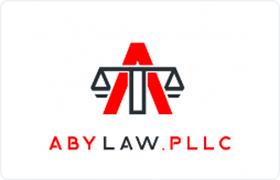 Puckett Felony Lawyers, Mississippi
Puckett Felony Lawyers, Mississippi
Sponsored Law Firm
-
 x
x

Click For More Info:
-
Abby Law, PLLC
403 B Towne Center Blvd Suite 102 Ridgeland, MS 39157» view mapCriminal Defense Law Get the Legal Support You Need
If you need an experienced litigation attorney, look no further than Aby Law, PLLC. We are a trusted general practice law firm in Ridgeland, MS.
800-953-2840
Not enough matches for Puckett Felony lawyer.
Below are all Puckett Criminal lawyers.
Lawyers
1-4 of 4 matches
Divorce & Family Law, Criminal, Children's Rights
Lawsuit & Dispute, Divorce & Family Law, Criminal, Medical Malpractice, Accident & Injury



 Heather Aby Ridgeland, MS
Heather Aby Ridgeland, MS Practice AreasExpertise
Practice AreasExpertise